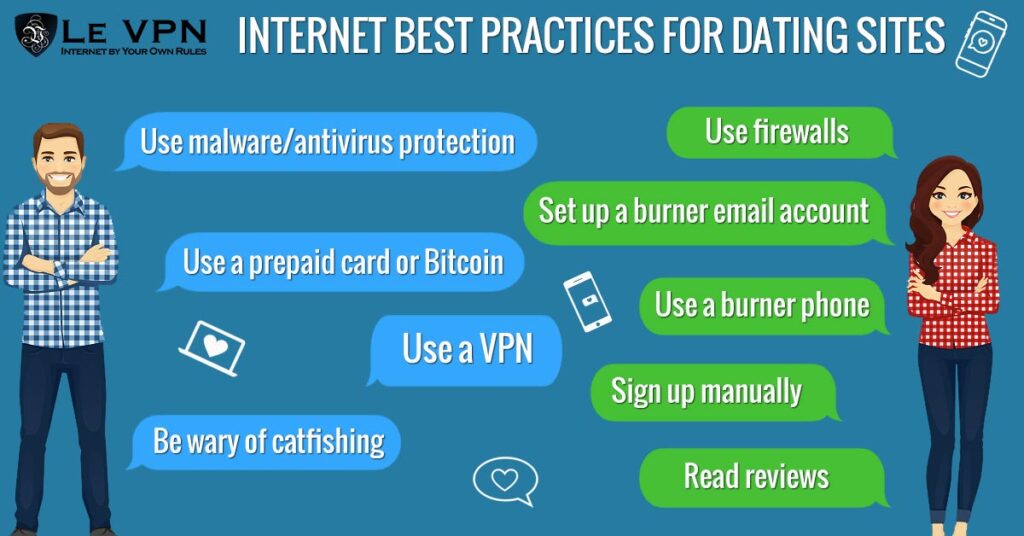In this article, we will discuss some common Tinder scams that you should be aware of and avoid. We’ll cover topics such as fake profiles, catfishing, and phishing attempts. By the end of this article, you will have a better understanding of the potential scams on Tinder and how to protect yourself while using the app. So, let’s get started and learn how to spot and avoid these scams on Tinder!
What Are Some Common Tinder Scams To Avoid?
In today’s digital era, online dating has become increasingly popular, and Tinder is one of the most popular platforms for meeting new people. However, with the rise in popularity comes the risk of falling victim to scams. It is essential to prioritize your safety and be aware of the common Tinder scams that exist. By understanding and recognizing these scams, you can protect yourself from potential dangers and have a more enjoyable and secure experience on the platform.

Understanding the Importance of Online Safety
When it comes to online dating platforms like Tinder, your safety should always be a top priority. It is crucial to remember that not everyone on the app has good intentions. While there are genuine people looking for a relationship or connection, there are also individuals who seek to take advantage of unsuspecting users. By understanding the importance of online safety, you can be proactive in avoiding common Tinder scams.
Recognizing Fake Profiles and Catfishing Attempts
Fake profiles and catfishing attempts are prevalent on Tinder. These scammers create profiles using stolen photos, misleading information, and false identities to manipulate and deceive users. They often prey on individuals who are vulnerable, lonely, or naive. To avoid falling victim to these scams, it is essential to be cautious and aware of the signs of a fake profile.
Some common signs of a fake profile or catfishing attempt include:
- Photos that appear too good to be true or excessively professional
- Lack of personal information in the profile bio
- Inconsistencies or discrepancies in the information provided
- Unusual or scripted conversation patterns
- Requests for personal or financial information early on
If you suspect that a profile is fake or a catfishing attempt, it’s best to trust your instincts and proceed with caution. Consider conducting a reverse image search to verify the authenticity of the profile picture and report any suspicious accounts to Tinder.
The Dangers of Personal Information Sharing
One of the most critical aspects of online safety is protecting your personal information. Scammers on Tinder may try to manipulate you into sharing sensitive details such as your full name, address, phone number, or financial information. This can lead to identity theft, fraud, or even physical harm.
Always remember that it’s essential to be cautious when sharing personal information with someone you’ve just met online. Avoid disclosing sensitive details until you’ve developed a level of trust with the person. If someone is pressuring you to share personal information or makes you feel uncomfortable, it is a red flag.
Beware of Money-Related Scams
Another common Tinder scam involves individuals attempting to exploit users financially. These scammers may create emotional connections with their victims before fabricating stories of financial hardship or emergencies. They use these stories to manipulate users into sending them money.
To avoid falling victim to money-related scams:
- Be wary of anyone asking for money, regardless of the reason.
- Avoid sending money to someone you’ve never met in person.
- Remember that genuine connections should be built on trust, not financial transactions.
It’s important to note that Tinder advises against sending money or gifts to anyone you have not met in person. Always prioritize your financial safety and protect yourself against potential scams.

Identifying and Avoiding Bot Accounts
Bot accounts are automated programs designed to interact with Tinder users and initiate conversations. They may seem like real profiles at first, but as the conversation progresses, you’ll notice repetitive responses and generic messages. These bot accounts often try to direct users to external websites, which can be dangerous.
To identify and avoid bot accounts:
- Look for generic or non-contextual messages.
- Pay attention to unusual or inconsistent conversation patterns.
- Be wary of profiles that quickly redirect you to external links or apps.
If you suspect you’re interacting with a bot account, report it to Tinder and cease all communication.
The Risks of Sextortion and Blackmail
Sextortion and blackmail are serious concerns in the online dating world, and Tinder is not exempt. Scammers may engage in explicit conversations, request or send explicit photos, and subsequently threaten to share or expose them unless certain demands are met. These demands could include more explicit content or even financial compensation.
To protect yourself from sextortion and blackmail:
- Avoid engaging in explicit conversations or sharing personal photos with strangers.
- Be careful with whom you share intimate content, even if you trust the person.
- If someone threatens or coerces you, report the account immediately and cease communication.
Always remember that your privacy and safety should never be compromised for the sake of a Tinder match.

Staying Safe When Meeting in Person
While Tinder provides an avenue for connecting with potential romantic partners, it’s crucial to exercise caution when deciding to meet someone in person. Meeting offline can be exciting, but it’s always important to prioritize your safety.
Here are some safety tips for meeting someone from Tinder in person:
- Choose a public location for your first meeting.
- Inform a friend or family member of your plans, including the location and time.
- Arrange your transportation to and from the meeting place.
- Trust your instincts and be ready to leave if you feel uncomfortable.
By following these precautions, you can reduce the risk of potential harm or dangerous situations.
Recognizing Red Flags in Conversations
Scammers often exhibit certain red flags in their conversations. By noticing these signs early on, you can protect yourself from falling victim to their schemes. Here are a few common red flags to watch out for:
- Excessive flattery or love-bombing.
- Expressing strong emotions too quickly.
- Requests for personal or financial information.
- Stories that seem exaggerated or inconsistent.
- Inconsistencies between their profile information and what they tell you.
If anything seems off or too good to be true, don’t hesitate to pause and reassess the situation. Trust your instincts and proceed with caution.
![]()
Protecting Yourself from Phishing Scams
Phishing scams involve scammers attempting to trick users into sharing their personal information or login credentials through deceptive emails, messages, or websites. These scams can lead to identity theft or unauthorized access to your accounts.
To protect yourself from phishing scams:
- Be cautious when clicking on external links or downloading files.
- Double-check the legitimacy of websites by verifying their URL.
- Avoid entering personal information on suspicious or unfamiliar websites.
- Enable two-factor authentication for added security.
By being vigilant and skeptical of unsolicited messages or suspicious links, you can avoid falling victim to phishing scams.
Using Caution with Third-Party Links and Apps
While Tinder itself is a trusted platform, scammers may attempt to lure users away from the app to external links or apps. These third-party links and apps can be malicious and potentially compromise your security.
To stay safe:
- Avoid clicking on external links unless you trust the source.
- Use caution when downloading third-party apps related to Tinder.
- Stick to interacting within the Tinder platform as much as possible.
By remaining within the confines of the official Tinder app and exercising caution with external links, you can reduce the risk of falling victim to scams.

Understanding the Role of Social Engineering
Scammers often use social engineering tactics to manipulate and deceive their victims. They may exploit emotions, create a sense of urgency, or establish trust through persuasive techniques. By understanding the role of social engineering, you can better protect yourself from falling into these traps.
Always remember:
- Genuine connections require time to develop and should not be rushed.
- Be skeptical of stories or requests that invoke a strong emotional response.
- Do not feel pressured into making impulsive decisions or sharing personal information.
By being aware of these tactics, you can maintain a level-headed approach when engaging with potential matches on Tinder.
Reporting and Blocking Suspicious Accounts
If you encounter a suspicious profile or suspect that you’re dealing with a scammer on Tinder, it’s essential to take appropriate action. Tinder provides reporting and blocking options to help users combat scammers and maintain a safe environment for everyone.
To report a suspicious account, follow these steps:
- Open the suspicious user’s profile.
- Tap the three dots at the top right corner of the screen.
- Select “Report” and choose the appropriate reason.
Blocking a user on Tinder is simple:
- Open the user’s profile.
- Tap the flag icon at the top right corner of the screen.
- Choose “Block User.”
By reporting and blocking suspicious accounts, you not only protect yourself but also contribute to a safer and more secure community on Tinder.
Educating Yourself on the Latest Scam Tactics
Scammers are constantly evolving their tactics to exploit unsuspecting users. Therefore, it’s essential to stay informed and educate yourself about the latest scam tactics specific to Tinder. Keep up with news, online resources, and community discussions to stay one step ahead of scammers.
Being proactive and well-informed empowers you to make safer choices and avoid falling victim to scams.
Conclusion: Prioritizing Safety on Tinder
As you navigate the world of Tinder and online dating, it’s crucial to prioritize your safety and be aware of the common scams that exist. By understanding the importance of online safety, recognizing red flags, and using caution when sharing personal information, you can protect yourself from potential dangers.
Remember to maintain a healthy dose of skepticism, trust your instincts, and take the necessary precautions when meeting someone in person. By following these guidelines, you can maximize your chances of having enjoyable and secure experiences on Tinder while avoiding common scams that could compromise your safety. Stay safe, be vigilant, and enjoy connecting with genuine people on the platform.
